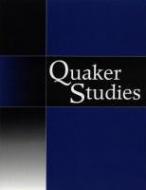
Abstract
This article examines seventeenth- and eighteenth-century Quaker methods of biblical interpretation, comparing them to Puritan and Spiritualist methods. The focus is on verses from the Pauline epistle to the Colossians frequently cited by early Quakers. In contrast to John Calvin and four seventeenth-century Puritan Biblical commentators, but similar to seventeenth-century Spiritualists such as William Erbery, Quakers argued strongly for a form of mystical universalism closely akin to Arminianism in their interpretation of this epistle. Quakers (especially John Woolman) resembled medieval Catholics in their willingness to interpret Col. 1.24 to assert that Christ's 'mystical' body, which could include contempora1y Christians, was somehow involved in the redemption of humanity. Early Quakers tended to reserve the eschatological promise of the 'hope of glory' in Col. 1.27 for those who had fully experienced redemption, or 'convincement'. Quakers and Puritans resembled each other in their arguments for a spiritualist interpretation of Col. 2.14-17, and both, somewhat inconsistently, tempered spiritualist principles with pragmatic acceptance of certain outward ecclesiastical practices in their attempts to preserve church order.
Recommended Citation
Angell, Stephen W.
(2007)
"Universalising and Spiritualising Christ's Gospel: How Early Quakers Interpreted the Epistle to the Colossians,"
Quaker Studies: Vol. 11:
Iss.
1, Article 3.
Available at:
https://digitalcommons.georgefox.edu/quakerstudies/vol11/iss1/3
